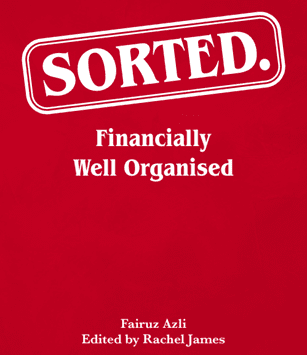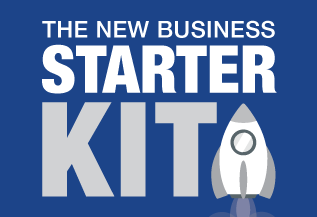Accounting For Psychologists Newsletter #6
Hi and Welcome to the December edition of Accounting for Psychologists Newsletter.
Last month I was in Sydney for a conference. It was my first time in a plane since the “old days” and it was great to travel again. There’s a lot to be said for meeting people face to face rather than online. Better still, my family came too and we were able to add on a few days of holiday. Since the conference related to my work, I’ll be able to claim a lot of the expenses as a tax deduction. I’ll explain more about what can be claimed in this newsletter.
This month we’ll look at
- Claiming deductions related to attending a seminar, conference or training course
- Year End Reflection
- End of year sales & tax deductions
Looking for a practical gift?

“Sorted” provides practical information and easy to use worksheets and checklists to help you become financially well organised in each of the eight key areas of personal finance:
- Personal Budgeting
- Savings
- Investments
- Taxation
- Debt
- Insurance
- Retirement
- Estate Planning
Order online Visit Website
Important Dates for Tax
| Due Date |
What’s Due |
| 21 November 2022 |
Monthly BAS lodgement due date |
| 25 November 2022 |
Quarterly BAS (July-Sept) due date if you lodge with a tax agent (i.e. us) |
| 21 December 2022 |
Monthly BAS lodgement due date |
| January 2023 |
Monthly BAS lodgement due date |
| 28 January 2023 |
Make quarter 2, 2022–23 super guarantee contributions to funds by this date. |
| 21 February 2023 |
Lodge and pay January 2023 monthly business activity statement. |
Seminars, conferences and training courses
The golden rules for claiming deductions relating to a seminar, conference or training course are:
- You must have spent the money yourself and not be reimbursed.
- You must have a record to prove it. Keep your receipts!
- You can only claim the work‑related portion of the expenses.
- The seminar, conference or training course will maintain or increase the knowledge, or skills you need to earn your income in your current employment
The costs you can claim include:
- Fares to attend the venue where the seminar, conference or training course is held (e.g. taking a flight, driving your car, catching a train, taxi, or bus,)
- Registration costs for the event
- accommodation
- And meals (if you need to travel and stay away from home overnight to attend the event)
If you travel away from home for 6 or more nights in a row, you need to keep travel diary as well as keeping receipts. It can be paper or electronic and must show your travel movements and activities including the date, location, what you were doing and the start and end time for the activities.
If your expenses are partly private in nature, you must apportion your expenses.
Here are some helpful examples about apportioning expenses from the ATO:
Example 1
You take your partner or children away with you when you travel for work. You cannot claim the cost of any travel expenses you incur for them. For example, you pay for a two-bedroom apartment to accommodate your children, but you can only claim a deduction for the cost you would have incurred on a one-bedroom apartment had you travelled alone.
Example 2
You fly to Perth for a seven-day work conference and add on a return trip to Broome for four days. You can only claim: your flights to and from Perth and the accommodation, meals, and incidental expenses that you incurred during the seven days of work-related travel.
Example 3
You are in the process of booking a holiday to Sydney to see an art exhibition when your employer asks if you’d like to attend a three-day work-related conference in Sydney. Coincidently, this is to be held from the Monday following your planned holiday. You change your travel arrangements to include the additional time in Sydney. In total, you spend three days in Sydney for private purposes followed by three days at the conference. You apportion your flights for the private component of your trip (50%) and only claim the accommodation, meals, and incidental expenses you incur during the three days of work-related travel.
Example 4
You fly to London for a 10-day international, work-related conference. You stay over for an extra two days to do some sightseeing. You cannot claim the cost of accommodation and meals for your two days of private travel. But the private component of the trip is merely incidental, so you can claim the full cost of your airfares.
Example 5
You are holidaying in Cairns when you become aware of a work-related seminar which runs for half a day. You can claim the cost of attending the seminar, but you cannot claim your airfares to and from Cairns, or accommodation whilst in Cairns, as the primary purpose of the travel is private
https://www.ato.gov.au/uploadedFiles/Content/IAI/Downloads/Toolkits/TaxTimeToolkit_Travelexpense
As always, if you have any questions about tax deductions feel free to speak to us here at Sheridans.
Year End Reflection
The holiday break often gives us time to draw back from the day to day, draw a few breaths and think about the big picture.
Reflecting on the last twelve months of your work can give you a sense of purpose about the future. You can look beyond the day-to-day
dramas of work – whether it’s running your own business or working as an employee - and see your overall achievements.
Take time to reflect the past year – the things that went well, the things that went better than expected and the things that didn’t go according to plan at all. Think about why those things went so right and how you can improve the things that didn’t.
I encourage you to consider the following:
- Your Top Five highlights of the year
- Your Top Five disappointments this year
- Your Top Five game-changers of this year. By this I mean an event or an idea that brought about a significant shift in the way your think about something or your way of doing something.
And if you have your own business:
- Three improvements your organisation has made in relation to Staffing, Systems & Processes and Finances
Reflecting upon your work helps you to define your strengths and areas for improvement and to prepare for the year ahead with your goals at the front of your mind.
End of year sales and tax deductions
Good news if you’re heading to the end-of-year sales! You can claim a deduction on a handbag, laptop bag, briefcase or luggage that you use for work.
Of course, it needs to be used for work purposes (for example to carry your laptop, diary, notebooks, and files) for a percentage of the time you have it, and it should be practical and reasonable.
If you use the bag only for work and it costs less than $300, you can claim an immediate deduction, if it’s over $300 you can claim it over time as a depreciating asset.
If you use the bag for work and private items, you need to apportion the expense between work-related and private use, and you can only
claim the work-related portion.
Here’s an example from the ATO website:
Theresa buys a large handbag for $280 to replace her current handbag, as she must now take a small laptop and client paperwork to and from work and to client meetings. She also uses her new handbag to carry personal items.
Theresa works out she is using the new handbag 70% for work purposes.
Theresa works out her deduction as $196 ($280 × 70% work use).
https://www.ato.gov.au/individuals/income-and-deductions/deductions-you-can-claim/tools,-equipment-and-other-assets/#Handbagsbriefcasesandsatchels
And if you’re like my colleagues and just love stationery, you’ll be pleased to know that you can also tax deduct your diary, calendar and any stationery that you use for work.
If you’re not sure if something is a work-related deduction, check with your accountant. Be sure to keep all your receipts.
Sheridans will be closed from 23 December 2022 to 9 January 2023.
Wishing you all the best for the holiday season and the New Year
Go forth and prosper,
Fairuz













